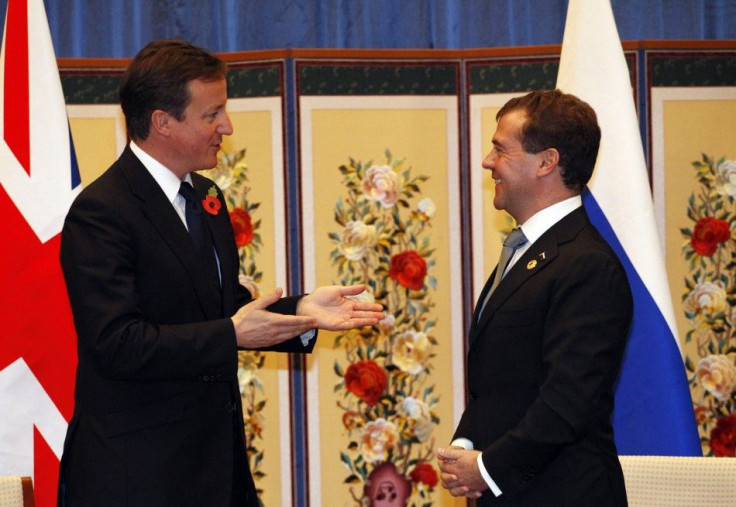UK PM Cameron Bracing for Difficult Talks in Russia

British Prime Minister David Cameron will likely face pressure to reestablish intelligence and counter-terrorism cooperation agreements with Russia when he visits Moscow on an official state visit next week.
Links between Britain’s MI5 and MI6 spy agencies and Russian intelligence have been severed since Alexander Litvinenko was murdered in London in 2006.
Litvinenko was an ex- KGB spy who was poisoned after speaking out against the Russian government and becoming a British citizen. Scotland Yard’s principal suspect in the murder is a man named Andrei Lugovoi, a former KGB bodyguard that UK authorities want to prosecute.
Lugovoi is now a member in Russia's parliament, the Duma. He's a member of Vladimir Zhirinovsky's extreme right-wing Liberal Democratic Party.
The death of Litvinenko sparked a diplomatic rift that hasn't completely healed since that time. British authorities are reportedly upset that Russia hasn't handed over the prime suspect in the murder.
Cameron is expected to confer with Russian President Dmitri Medvedev as well as Prime Minister Vladimir Putin. This will be Putin’s first direct contact with senior UK officials since 2007.
Alexander Yakovenko, the Russian ambassador in London, told reporters ahead of Cameron’s trip: We are waiting for a decision from the British side on reestablishing full cooperation with all the Russian law-enforcement bodies and special services. At this stage Russia and the UK is not cooperating in this area. We believe that this is in the interests of both countries and in the interests of all countries in the world.
Yakovenko also indicated that the British government hasn't signaled any intention to reestablish such links.
“But we hope,” he said. “Everything is in the hands of the British side. We are ready.
With respect to the Litvinenko affair, Yakovenko commented: We believe that the Russian constitution cannot allow for the extradition of Russian citizens. We are ready to cooperate on this case. Without evidence, how can we launch a case?
Separately, Cameron will also face some tough questions regarding NATO’s missile strikes in Libya, which the Russian government opposed.
The Russian government said Britain and France definitely went beyond the U.N. Security Council resolution by undertaking aggressive military action in Libya.
This [was] a very bad precedent, Yakovenko said, adding, NATO’s actions in Libya would likely preclude Russian support of similar actions against Syria.
Accompanying Cameron to Russia will be a group of business executives, including Robert Dudley, the head of BP, which recently lost out on a huge exploration program in the Russian Arctic with Rosneft, the Russian oil company. That deal went to BP’s U.S. rival, Exxon-Mobil.
BP is also facing allegations of corruption at its Moscow subsidiary, the offices of which were raided by Russian police.
© Copyright IBTimes 2024. All rights reserved.











